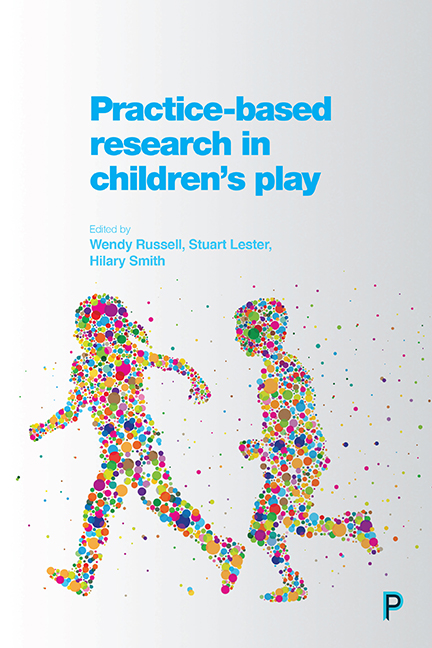Book contents
- Frontmatter
- Contents
- List of figures
- Notes on contributors
- Acknowledgements
- Foreword
- One Perspectives on play research: the practice-theory-research entanglement
- Part One Then and now: historical perspectives
- Part Two Here and there, this and that: spatial and creative perspectives
- Part Three Playfulness and wellbeing
- Closing thoughts
- Appendix: The Playwork Principles
- Index
Appendix: The Playwork Principles
Published online by Cambridge University Press: 05 April 2022
- Frontmatter
- Contents
- List of figures
- Notes on contributors
- Acknowledgements
- Foreword
- One Perspectives on play research: the practice-theory-research entanglement
- Part One Then and now: historical perspectives
- Part Two Here and there, this and that: spatial and creative perspectives
- Part Three Playfulness and wellbeing
- Closing thoughts
- Appendix: The Playwork Principles
- Index
Summary
An Introduction
The Playwork Principles establish a professional and ethical framework for playwork. They are endorsed by the national training organisation for playwork – SkillsActive – by the Welsh Assembly Government and by Play Wales.
Where the Principles refer to children and young people, they mean all children and young people.
Playwork Principles
These Principles establish the professional and ethical framework for playwork and as such must be regarded as a whole. They describe what is unique about play and playwork, and provide the playwork perspective for working with children and young people. They are based on the recognition that children and young people's capacity for positive development will be enhanced if given access to the broadest range of environments and play opportunities.
1. All children and young people need to play. The impulse to play is innate. Play is a biological, psychological and social necessity, and is fundamental to the healthy development and wellbeing of individuals and communities.
2. Play is a process that is freely chosen, personally directed and intrinsically motivated. That is, children and young people determine and control the content and intent of their play, by following their own instincts, ideas and interests, in their own way for their own reasons.
3. The prime focus and essence of playwork is to support and facilitate the play process and this should inform the development of play policy, strategy, training and education.
4. For playworkers, the play process takes precedence and playworkers act as advocates for play when engaging with adult-led agendas.
5. The role of the playworker is to support all children and young people in the creation of a space in which they can play.
6. The playworker's response to children and young people playing is based on a sound up to date knowledge of the play process, and reflective practice.
7. Playworkers recognise their own impact on the play space and also the impact of children and young people's play on the playworker.
8. Playworkers choose an intervention style that enables children and young people to extend their play. All playworker intervention must balance risk with the developmental benefit and wellbeing of children.
- Type
- Chapter
- Information
- Practice-Based Research in Children's Play , pp. 265 - 266Publisher: Bristol University PressPrint publication year: 2017



